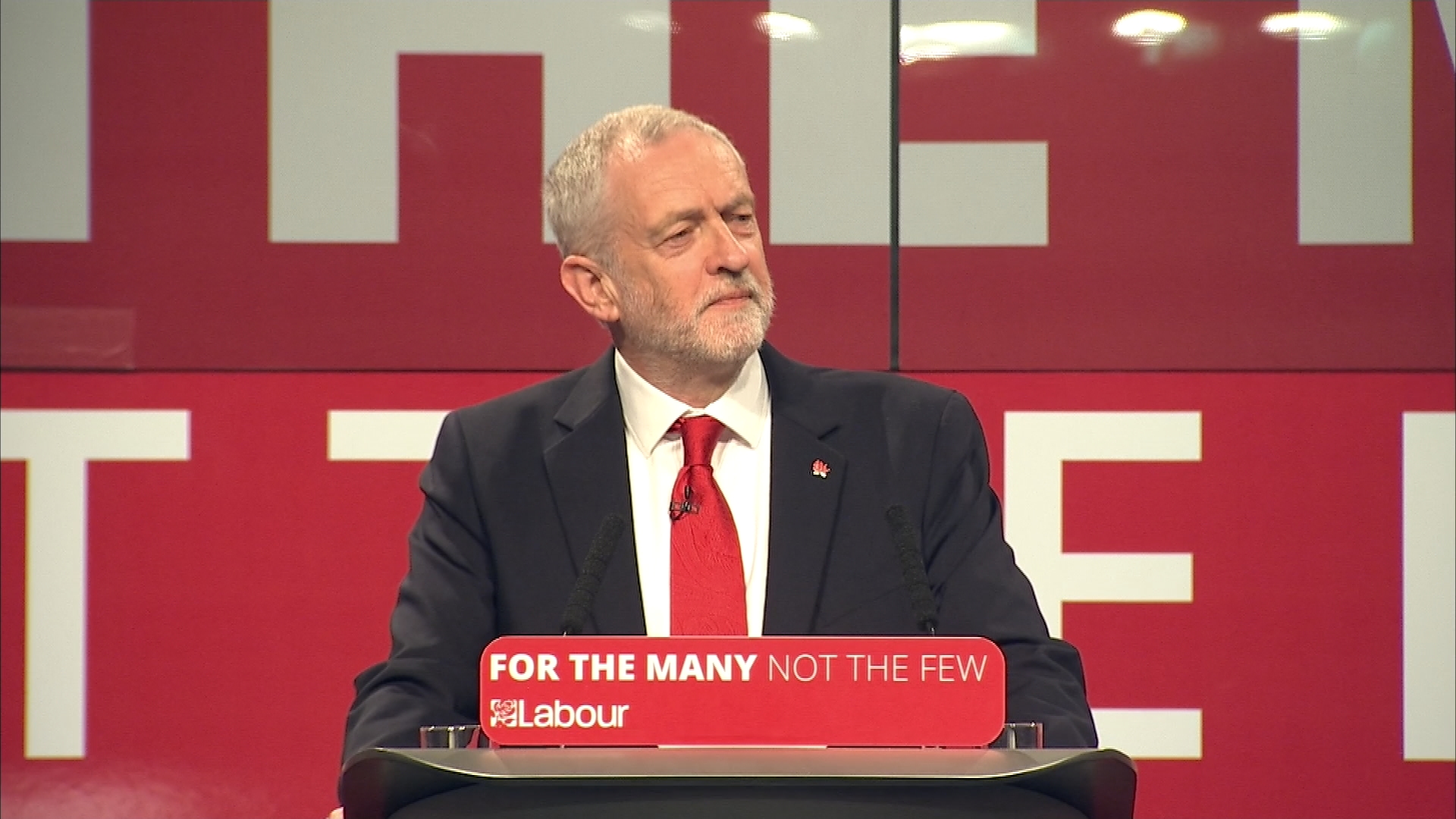Jeremy Corbyn – ‘we have four weeks to ruin their party’
Am in Manchester following Jeremy Corbyn. He’s packed 1000 supporters into a hall for his campaign launch. The backdrop is his battle bus, driven into the venue on a near empty tank due to health and safety rules.
The rhetoric is fiery. Mr Corbyn told the faithful:
“We have four weeks to ruin their [the exploitative rich’s] party. We have four weeks to take our wealth back. We have four weeks to win and transform Britain for the many not the few.
“When Labour wins there will be a reckoning for those who thought they could get away with asset stripping our industry, crashing our economy through their greed and ripping off workers and consumers.”

The programme sounds a lot like Ed Miliband in 2015. That’s in part because the party has been ambushed by Theresa May’s sudden election. Other policies weren’t worked out. Also they’ve been testing various policies with voters and the 2015 ones consistently and massively out-perform others. Presumably Theresa May, given her embrace of Labour energy bill caps today, has been running the same focus groups with the same results.
But one veteran Left MP told me: “it’s very, very odd. We’re meant to be more radical than any leadership for decades and the policies are the same again.”
Andrew Fisher, Corbyn’s policy chief and pulling together the manifesto, is “turning into Torsten,” one Corbyn ally said, a reference to Torsten Bell, former policy chief to Ed Miliband, and much hated by some on the Left who felt he sieved out their bolder ideas from the Miliband platform.
I asked Mr Corbyn in what way it would feel like a day of reckoning for greedy bankers. He talked of tax avoidance measures and cracking down on tax havens.
His team said the workers’ rights proposals alone would be transformatory to the way Britain operates. He insisted the policies were fresh and different from 2015. But look back at the last time the Left secured the leadership of the Party in 1983 and you can’t help thinking that radical change was advertised a bit more clearly then. The appetite for change hasn’t diminished amongst the leading figures of the Left but the readiness to advertise it might have been curtailed over the years.
One shadow cabinet member told me lots of traditional labour voters are saying “don’t know,” he estimated one quarter to a third are saying they’re “not sure” how they’ll vote. Many of the wobblers are in more pro-Brexit areas. Theresa May’s ownership of the Brexit cause is hurting Labour in many areas and today’s lines on how there’s no turning back are an attempt to connect with these voters.
The Clause 5 meeting of NEC and other party bigwigs on Thursday looks like being plain sailing. It was only 50 minutes long in 2015. Ken Livingstone briefly challenged Ed Balls as they considered the economic policy chapter but was then slapped down.
In 1983, as Michael Foot tested that more radical manifesto, some on the Right of the party stood back from meddling in the hope they would give the Left full ownership of defeat and clear the way for a resurgence of the Labour Right. No fight is being put up this time either but, so far, the programme isn’t as drastic as rhetoric.
The reception from the faithful was ecstatic. Talking to them beforehand I found them braced for defeat and not all of them convinced Mr Corbyn should hang around if he loses badly. You also found a lot of supporters in the room who hadn’t yet done any campaigning. But they loved their leader and hoped the polls could turn.
Follow Gary Gibbon's blogs on Twitter: @garygibbonblog
